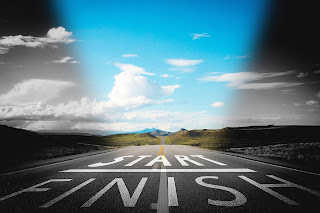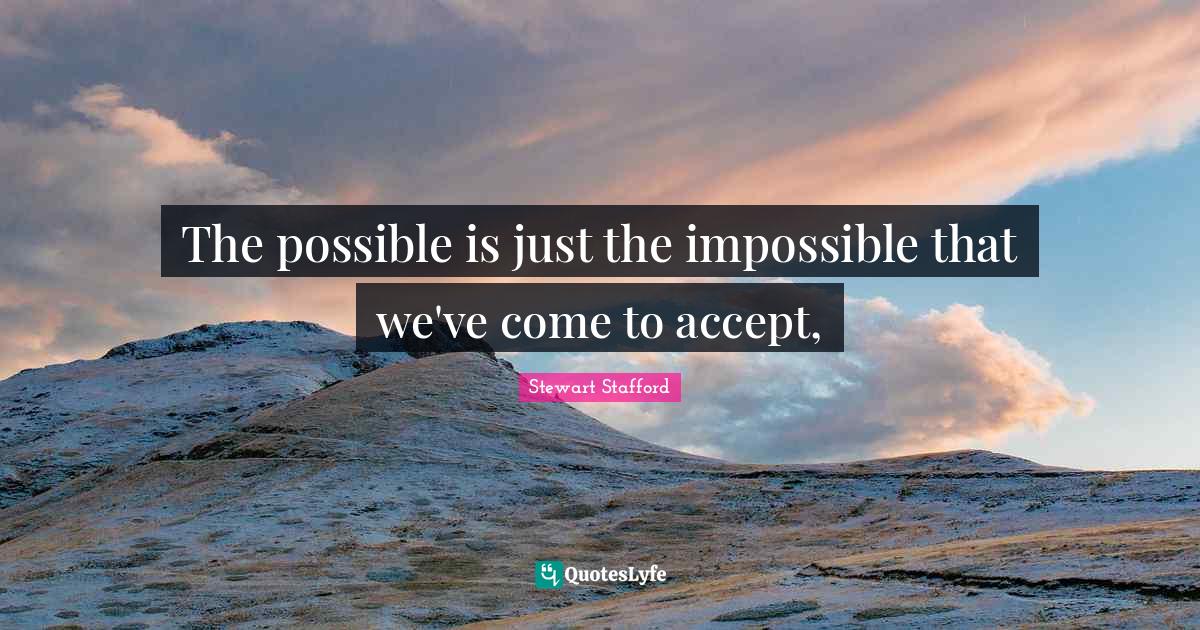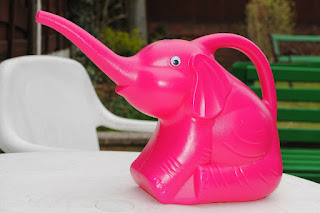2022: Just Keep Swimming
In his 2017 bestselling book Finish, author Jon Acuff writes, "I thought the biggest problem for people was the phantom of fear that prevented them from beginning...Fear was the ghost holding them back and starting was the only way to beat it. I was half right. The start does matter. The beginning is significant. The first few steps are critical. But they aren't the most important. Do you know what matters more? Do you know what makes the start look silly and easy and almost insignificant? The finish."
Last March I introduced the blog's 2021 theme of Motivation. This year--a year actually beginning in January!--I'd like to continue that concept into a new theme: the theme of Momentum.
As Acuff points out, starting is important. And motivation can help us get to the starting line. But momentum is what gets us through the slog of the "messy middle." According to Acuff, the most important point of any major goal or project is what happens "the day after perfect."
The day after perfect is what Acuff calls the period of time that follows the first instance someone doesn't live up to their own idea of what the completion of their goal should look like. It's the day after the first time you hit snooze instead of waking up early for a run, the night after the night you fell asleep without writing in your journal, the meal after you passed on the salad bar and went straight for dessert. It's the moment you might be tempted to say, "Well, I've already messed up, might as well just give up entirely!"
There's an old cliche that says something to the effect of, 'just because you break one plate doesn't mean you should throw every other plate on the ground.' And this seems totally obvious, but it's amazing how often I find myself tempted to do just that. Metaphorically, I mean...So this year we're going to try to build on our motivation and find the momentum to keep moving forward even after our plans go slightly askew. The topic will be applied to writing-related issues, but hopefully these ideas will be useful in all areas of life. Here's to 2022!
Reference
Acuff, J. (2017). Finish: Give yourself the gift of done. Portfolio/Penguin.
The Benefits of Regret
I can't believe it's already the end of December. It seems this past year was both unending and insanely short. (Or is that just me?) I introduced the blog's theme of motivation in March and--while it hasn't been a full year--it seems fitting to look back at that theme and start planning for 2022. (It will probably be March again before I'm able to write 2022 without either first writing 2021 or feeling the need to double-check that I'm not making up a year).
My WriteCast cohost, Claire Helakoski, will be posting an episode focused on SMARTER goals at the beginning of next month and the discussion we had got me thinking about how we can use reflection--as well as careful planning for the future--to ensure we move forward in our most important goals. In particular, I'm wondering if there's a way to reframe supposed 'failures' and regrets so they can propel us in a positive way rather than holding us back.
Much research has been done on the ways thoughts impact reality. As productivity coach Michael Hyatt (2021) put it, "we tend to experience what we expect...our success ultimately depends on our ability to tell the difference between reality and the story we are telling ourselves...when we believe we can't, we don't. The difference is all in our heads" (p. 18). Similarly, author Stewart Stafford argued, "the possible is just the impossible that we've come to accept" (QuotesLyfe.com). Basically, how we frame things in our own minds is important.
This is why I think it would be a good idea to (re)frame how we might usually think about our past mistakes, regrets, and anything we might consider a failure. Some of my favorite motivational quotes run along the lines of, 'failures are actually opportunities for learning' but at times this can seem cliché or flippant. Personally, I find these quotes inspiring in general, but less helpful in times I find myself overthinking things I've done or avoided doing. If you're like me, hearing "don't think about pink elephants" instantly conjures images of those animated "heffalumps" from "Winnie the Pooh and the Very Blustery Day" (or some other version of elephants in shades of faded red). And quotes like "we learn from failure, not from success", at a time when I'm overthinking, read as platitudes rather than sound advice (Stoker, 2000, p. 103).
Research has also found that attempting to 'just get on with things' rather than allowing yourself to deal with regret is actually more damaging than we might think. Janet Landman (1993), a psychologist from the University of Michigan posited, "Regret may not only tell us that something is wrong, but it can also move us to do something about it" (p. iii). And University of Illinois researchers Neal Roese and Amy Summerville (2005) conducted an in-depth study about regret and found "people's biggest regrets are a reflection of where in life they see their largest opportunities; that is, where they see tangible prospects for change, growth, and renewal" (p. 1273). Basically, we tend to particularly dwell on mistakes we've made where we are most easily able to determine what misstep preceded, or what alternative action could have likely changed the outcome for the better.References
Hyatt, M. (2021). Your best year ever. Michael Hyatt & Company, Inc.
Landman, J. (1993). Regret: The persistence of the possible. Oxford University Press.
QuoteLyfes.com. (n.d.) Steward Stafford quotes. https://www.quoteslyfe.com/quote/The-possible-is-just-the-impossible-that-258026
Roese, N. J., & Summerville, A. (2005). What we regret most...and why. Personality and Social Psychology Bulletin, 31(9), 1273-1285. https://doi.org/10.1177/0146167205274693
Stoker, B. Dracula. Dover Publications, Inc.
Kacy Walz is a writing instructor from St. Louis, MO. She is currently working on a PhD in Literature from the University of Missouri. Along with her work on the blog, Kacy also cohosts the Walden Writing Center podcast. She enjoys piña coladas and getting caught in the rain.
.png)
WriteCast Episode 59: How to Set and Stick to a Writing Goal
Click the player below to listen. You can access all our episodes in our archive on our WriteCast show page.
- Writing
a Paper: Goal Setting (includes Why Set a Writing Goal, How to
Set a Writing Goal, How to Avoid Ineffective Writing Goals, Examples of
Effective Writing Goals, How to Achieve Your Writing Goals)
- Search
"goal" and "goal setting" on the Walden
University Writing Center website
The Walden University Writing Center produces WriteCast: A Casual Conversation for Serious Writers to support the community of scholarly writers at Walden University.
.png)
Never miss a new post; Opt-out at any time









